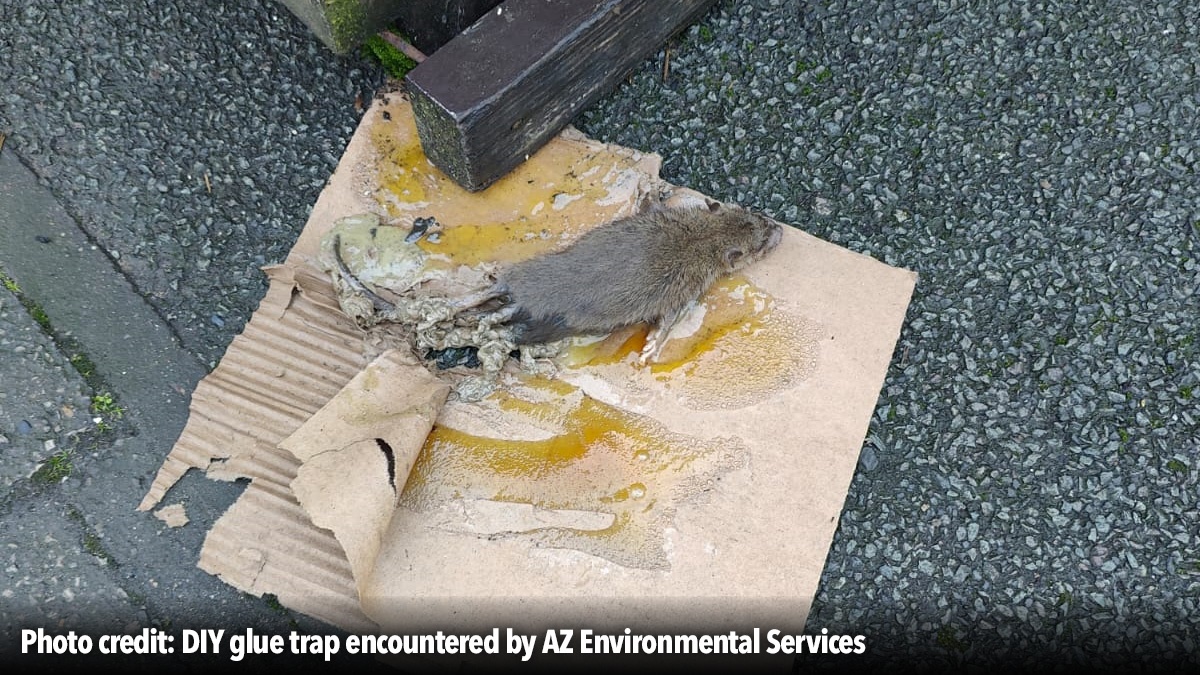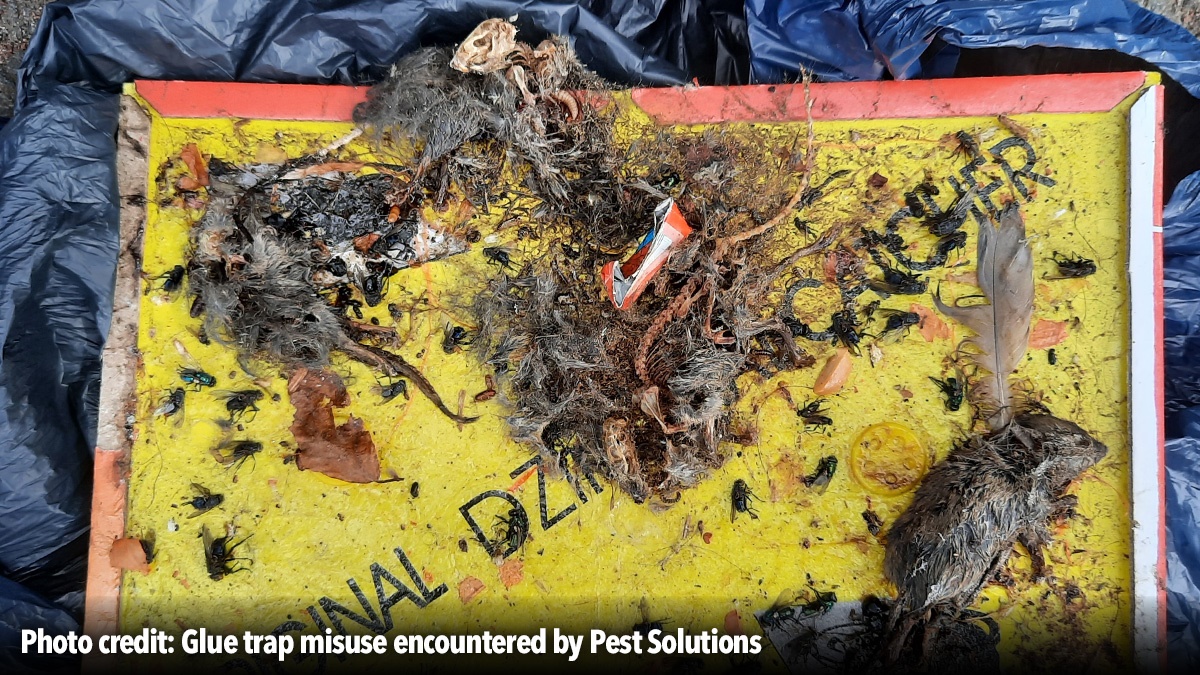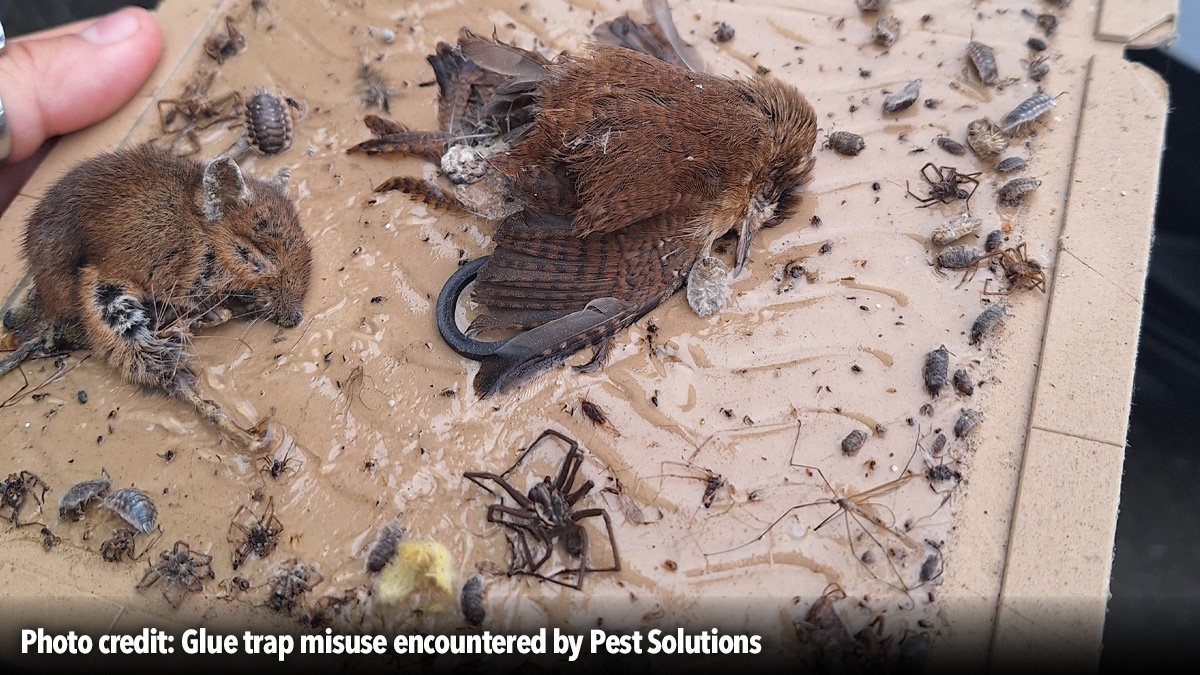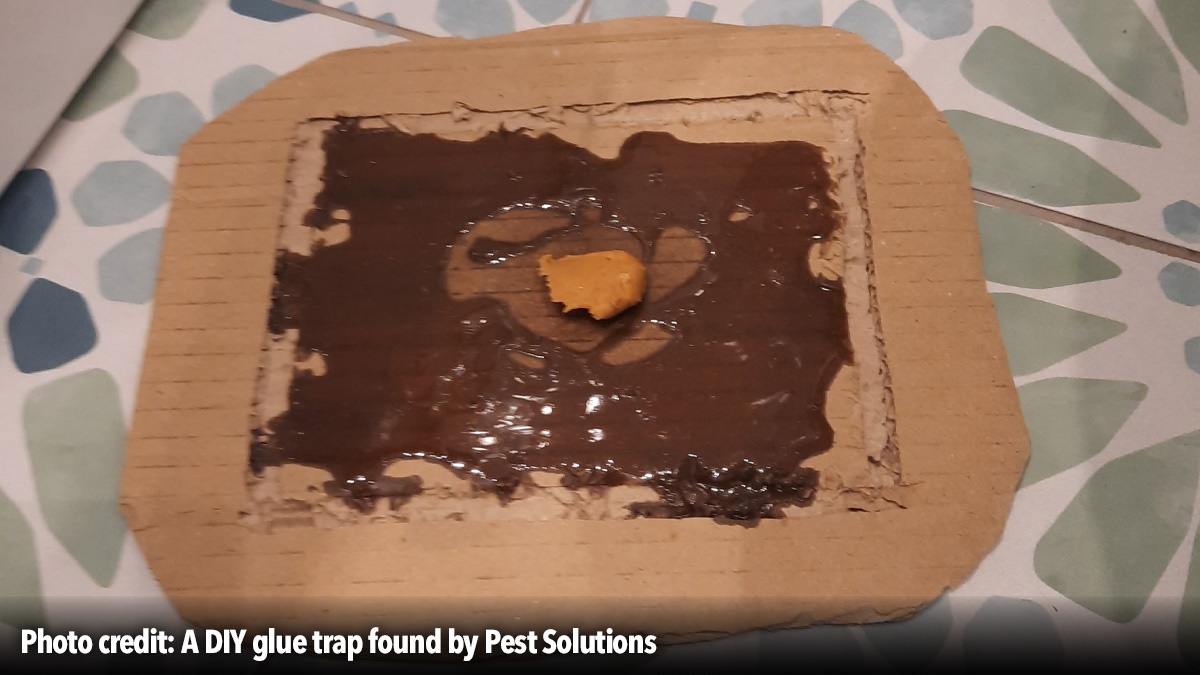LOBBYING AND PUBLIC AFFAIRS
BPCA has written an open letter to the Secretary of State for Environment, Food and Rural Affairs, Steve Reed.
The letter outlines how the glue trap licensing scheme in England has failed.
Content warning: animal cruelty
We're seeing growing public health risks due to prolonged infestations, while amateur misuse of glue traps continues to rise, largely because the traps remain easy to purchase.
The current approach is not working.
Our open letter outlines the changes urgently needed, including:
- Ban the sale of glue traps
- Strengthen enforcement efforts
- Improve the professional licences.
If you are interested in co-signing the letter, please contact us at policy@bpca.org.uk
Rt Hon Steve Reed MP
Secretary of State for Environment, Food and Rural Affairs
House of Commons
London
SW1A 0AA
steve.reed.mp@parliament.uk
RE: Open letter: The Glue Board (Offences) Act 2022 has failed to protect animal welfare or public health
Dear Rt Hons Steve Reed,
I am writing to urgently bring to your attention the failure of the Glue Traps (Offences) Act 2022 and its licensing scheme.
The British Pest Control Association (BPCA) represents the UK pest management industry and promotes high standards of professionalism to safeguard environmental and public health.
The Glue Traps (Offences) Act 2022 was intended to protect animal welfare by restricting the use of glue traps to licensed professionals.
However, due to a lack of enforcement, public awareness, and a failure to ban sales, the Act is not achieving its goal.
Instead, it has placed unnecessary restrictions on pest professionals while allowing unregulated and inhumane use to continue.

Since the Act came into force, there has been no serious attempt to educate the public or retailers on the new restrictions.
Trained and trusted pest professionals, who already follow high welfare standards, have complied with the law, whilst untrained individuals continue to use glue traps illegally and unchecked.
A December 2024 Freedom of Information request revealed that the Metropolitan Police have received no training on enforcing the ban. If the authorities responsible for enforcement are unaware of their role, how can the law be expected to work?

The failure to ban the sale of glue traps exacerbates the issue. While qualified professionals have all but ceased using glue traps due to the licensing requirements, amateurs can still purchase them online or in shops without oversight.
The result is an increase in unregulated, inhumane use: precisely what the Act was meant to prevent.
The British Pest Control Association (BPCA) recently surveyed its members and found that 40% of professionals have encountered illegal glue trap use by amateurs. Yet Natural England has taken no visible enforcement action.
Ironically, if pest professionals report illegal use, they risk losing clients to untrained individuals who can simply purchase traps online and attempt pest control themselves. The Act has, in effect, punished compliance while allowing non-compliance to flourish.

Additionally, the licensing scheme must be revised to make it more practical and affordable for professionals. The current requirements are prohibitively expensive.
In many cases, the cost of keeping a technician on-site overnight (~£680) is so high that it negates any benefit of obtaining a licence in the first place.
The financial disincentive, however, does not mean the infestations are being dealt with through other methods. Our members have reported that this has meant that infestations have become unmanageable or that the clients have put glue traps down themselves.
We have also received reports of incredibly inhumane DIY traps, that are left for long periods of time without being checked.
A more balanced approach is needed to ensure humane and effective pest control without imposing excessive financial burdens on professionals.

We suggest that through obtaining a licence and completing a training course, pest professionals should be trusted to carry out the work humanely.
Without a level of trust in professionals, unqualified businesses and homeowners will throw traps down themselves and are unlikely to use them humanely.
Therefore, we ask you, Defra and Natural England, to take the following steps:
- Ban the sale of glue traps – Preventing amateur use is the most effective way to ensure animal welfare and eliminate illegal deployment.
- Launch an immediate public awareness campaign – Inform retailers and the wider public about the ban and the legal consequences of using glue traps without a licence.
- Strengthen enforcement efforts – Allocate resources to actively monitor and penalise illegal glue trap use, ensuring the Act is upheld effectively.
- Expand the professional licence – Allow for broader use among trained professionals to ensure humane and controlled application when necessary.
- Revise the licensing scheme to be more affordable – Reduce the requirements of the licensing scheme to make compliance affordable to clients who need them for public health reasons.
Without urgent action, the Glue Traps (Offences) Act 2022 will remain ineffective, punishing compliance rather than addressing the root issue of animal welfare.
I look forward to your response on how Defra and Natural England intend to rectify these critical failings.
Yours sincerely,
Chris Cagienard
BPCA President